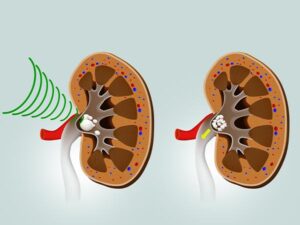Breaking Down Kidney Stones: Exploring Lithotripsy, a Non-Surgical Treatment Option

Kidney stones are a common urological condition that can cause severe pain and discomfort. Fortunately, advancements in medical technology have led to non-surgical treatment options such as lithotripsy. In this article, we will delve into the world of lithotripsy, understanding its purpose, procedure, and the benefits it offers as a non-invasive treatment for kidney stones.
Understanding Lithotripsy
Lithotripsy is a non-surgical procedure that uses focused sound waves or shock waves to break Lithotripsy kidney stones into smaller fragments, allowing them to be easily passed through the urinary tract. It is commonly used to treat kidney stones that are too large to pass naturally or cause significant pain and obstruction.

Lithotripsy Procedure
During a lithotripsy procedure, the patient is positioned on a specialized table. High-energy shock waves are then directed towards the kidney stones after localizing them under sonography or C- arm guidance. These shock waves create vibrations that break the stones into smaller pieces, similar to how a glass shatters when hit with a hammer. The broken stones can then be passed through the urinary system with urine.
Benefits of Lithotripsy
1. Non-Invasive Approach
In this procedure, a pouch is created from a segment of the intestine, serving as a reservoir for urine. The pouch is connected to the abdominal wall, and patients empty it by inserting a catheter through the stoma.
2. High Success Rates
Lithotripsy has proven to be effective in treating a wide range of kidney stone sizes and compositions. It can break down stones into smaller fragments that can be easily passed during urination.
3. Quick and Convenient
In this procedure, a pouch is created from a segment of the intestine, serving as a reservoir for urine. The pouch is connected to the abdominal wall, and patients empty it by inserting a catheter through the stoma.
4. Minimal Side Effects
Compared to surgical interventions, lithotripsy has fewer side effects and complications. Most patients may experience some mild discomfort or bruising, which typically resolves quickly.
Limitations of lithotripsy
Lithotripsy is not suitable for all kidney stones especially stones which are too hard, lower calyceal stones or stones larger than 1.5 cm. It may take multiple sessions for complete clearance of the stone. Sometimes larger residual fragments in the kidney or those getting stuck in the ureter may necessitate additional endoscopic procedure for their removal.
Lithotripsy offers a non-surgical, effective, and convenient treatment option for kidney stones. With its high success rates, minimal side effects, and quicker recovery, lithotripsy has revolutionized the management of kidney stones. If you are experiencing symptoms of kidney stones, consult with the best urologist in Mumbai to determine if lithotripsy is a suitable treatment for you. At Advanced Urology Mumbai, our experienced team specializes in lithotripsy procedures, providing comprehensive care to help you break free from the pain and discomfort of kidney stones.















